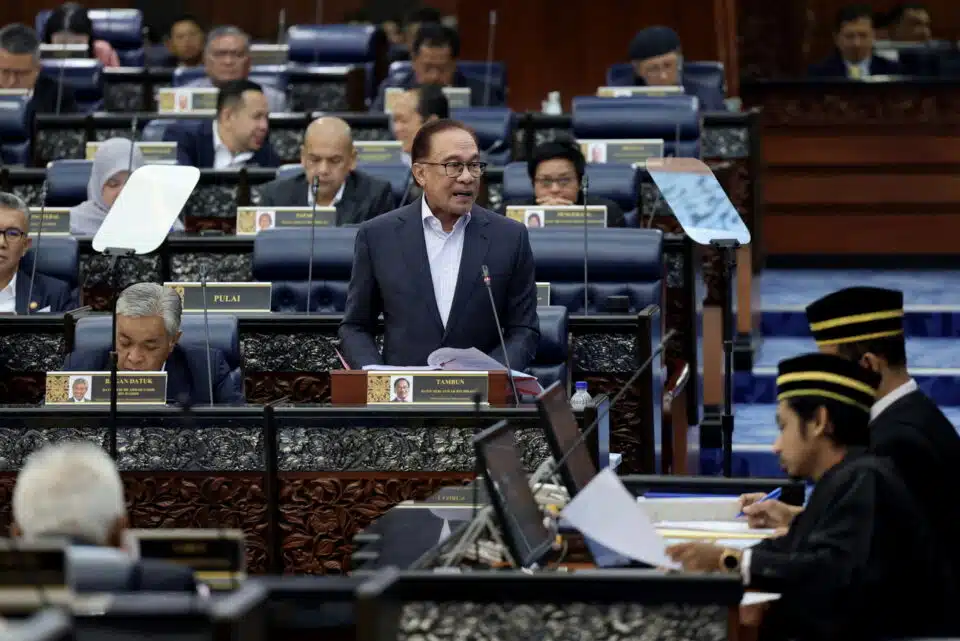By Danial Dzulkifly
KUALA LUMPUR, Sept 19 – Prime Minister Datuk Seri Anwar Ibrahim has doubled down on his statement that he did not interfere in the decision to grant his deputy Datuk Seri Ahmad Zahid Hamidi a discharge not amounting to acquittal (DNAA) in his corruption case.
Addressing opposition uproar in Parliament today, Anwar maintained that the prerogative on such matters rests firmly with the Attorney-General (AG), as enshrined under Article 145 of the Federal Constitution.
He also stressed that he had never engaged in any “discussion” with former AG Tan Sri Idrus Harun pertaining to Zahid’s case, and that he had merely sought for an explanation over the prosecution’s decision to suspend the proceedings.
“I didn’t discuss the matter with the former AG, but sought clarification. When the AG made the decision, my query was regarding the reasons behind the discharge. There wasn’t any discussion prior to that with the AG.
“The AG then presented 11 reasons for the decision to dismiss the charges,” he told the Dewan Rakyat in his winding up speech on the 12th Malaysia Plan Mid Term Review, here, today.
His clarification today came after a decision to grant Zahid a DNAA earlier this month, which was met with considerable public outcry and persistent demands from the opposition for Anwar to respond on the matter.
In his explanation, the prime minister cited several precedents where a DNAA was granted after a prima facie finding had been established.
This includes the case involving the infamous assassination of Kim Jong-nam, the estranged brother of North Korean leader Kim Jong-un, in February 2017, when one of the primary suspects was granted a DNAA by the court.
“There exists a precedent wherein the prosecution chose to terminate proceedings after establishing a prima facie case, as seen in the public prosecutor’s case against Siti Aisyah and Doan Thi Huong.
“In this particular instance, Aisyah was granted a DNAA by the Shah Alam High Court on March 11, 2019. This followed an application by the prosecution to the court to cease proceedings.”
Aisyah and Doan were indicted for Jong-nam’s murder at Kuala Lumpur Airport on February 13, 2017, with the high court later directing both of them to enter defence on August 16, 2018.
On March 11, 2019, the charge against Aisyah was withdrawn. Conversely, Doan received a jail term of three years and four months after entering a guilty plea.
Anwa also referenced several other court records to highlight similar precedents set in past cases, including Deputy Public Prosecutor (DPP) versus Long Samat in 1974; DPP versus Johnson Tan Han Seng in 1977; DPP versus Zainuddin and Anor in 1986; and Karpal Singh and Anor versus DPP in 1991.
On September 4, Zahid, who was facing 47 corruption charges in relation to his charitable foundation Yayasan Akalbudi, was granted a DNAA despite a prima facie case being established.
In its submission to the Kuala Lumpur High Court, the prosecution expressed its desire to cease proceedings on all the charges, saying it aligns with Article 145 of the Federal Constitution and Section 254 of the Criminal Procedure Code.
Specifically, the prosecution had requested for a DNAA decision.





